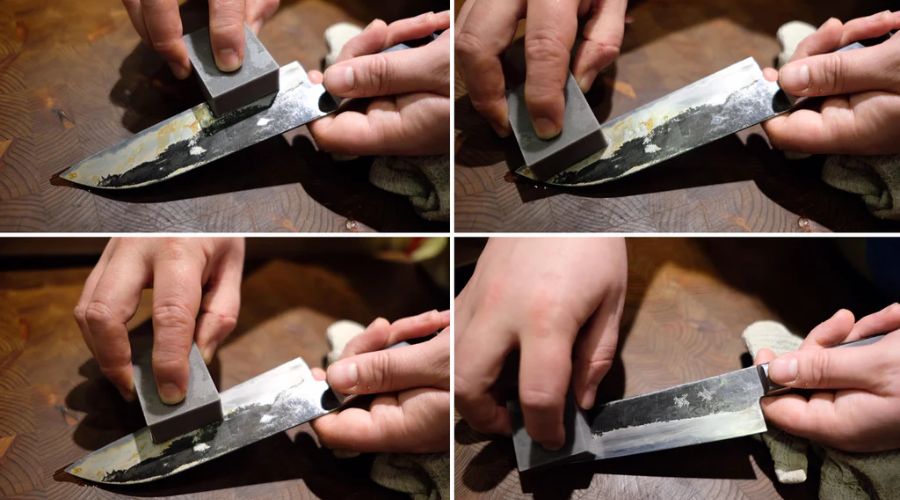
Knives are the backbone of any kitchen, from a professional restaurant to a humble home. They are versatile tools that make food preparation easier, quicker, and more precise. A good knife store can help you chop vegetables, slice meats, and even finely mince herbs. For both professional chefs and home cooks, knives are a key part of achieving the perfect dish. They come in various shapes, sizes, and materials, each designed for specific tasks. Choosing the right knife and learning how to use it properly can significantly improve your cooking skills and overall experience.
Different Types of Knives and Their Uses
Not all knives are created equal, and knowing the different types can help you make better choices in the kitchen. The chef’s knife, for example, is the most versatile. It can handle almost any task, from chopping onions to slicing chicken. A paring knife is smaller and ideal for peeling fruits or trimming small vegetables. Japanese Knives have serrated edges, perfect for cutting through crusty loaves without crushing the soft inside. Boning knives are flexible and used for fileting fish or trimming meat. Understanding the specific use for each knife helps streamline your cooking process and ensures you get the best results.
Choosing the Right Knife for Your Kitchen Needs
When choosing a knife, there are several factors to consider. First, think about the tasks you’ll be performing most often. If you cook a lot of meat, a good chef’s knife and a boning knife may be essential. For those who love to bake, a bread knife will be a must-have. The material of the blade is also important—stainless steel is durable and rust-resistant, while carbon steel knives are incredibly sharp but require more care. Handle comfort is another factor; a knife should feel balanced and comfortable in your hand. Investing in the right knives for your kitchen can make your cooking more efficient and enjoyable.
Why Knife Maintenance is Crucial
Keeping your knives sharp and well-maintained is just as important as choosing the right one. A dull knife is not only less effective but also more dangerous, as it requires more force and can slip easily. Regular sharpening with a honing steel or sharpening stone helps maintain the blade’s edge. Cleaning your knives properly, ideally by hand, also prolongs their life. Storing them in a knife block or magnetic strip prevents damage to the blade. A well-maintained knife cuts more efficiently, giving you cleaner slices and reducing the risk of injury during use.
Importance of Knife Safety in the Kitchen
Safety is paramount when using knives. Always use a sharp knife, as dull ones are more likely to cause accidents. Ensure your cutting surface is stable and use a cutting board that won’t slip. When slicing or chopping, keep your fingers tucked in and use the knuckles to guide the knife. Storing knives safely, whether in a drawer with a blade guard or a designated knife block, can prevent accidental cuts. By following simple safety practices, you can handle knives with confidence and avoid unnecessary injuries in the kitchen.
How Knives Save Time and Effort
A good knife can make a world of difference in how quickly and easily you prepare food. Sharp knives cut through ingredients with minimal effort, reducing the time spent chopping, slicing, or dicing. Instead of struggling with a dull blade, you can make clean cuts that look more professional. A sharp knife also helps preserve the integrity of the food, especially with delicate ingredients like herbs and tomatoes, which can be easily crushed by dull knives. With the right tools and techniques, you can move efficiently through your prep work, leaving more time to enjoy cooking and serving meals.
Role of Knives in Professional Cooking
In a professional kitchen, knives are more than just tools—they are extensions of the chef’s hand. Chefs spend years mastering knife skills, learning how to chop, slice, and dice with speed and precision. Each type of knife plays a specific role in food preparation, allowing chefs to create dishes that are both aesthetically pleasing and delicious. A well-balanced knife enables quick, efficient movements, crucial in a fast-paced kitchen environment. For professional chefs, their knives are highly personal, often custom-made or specifically chosen for their unique balance and blade sharpness.
Future of Knives in Modern Kitchens
As technology advances, so does the design and function of kitchen knives. Modern knives are now made with innovative materials like ceramic and high-carbon steel, which offer superior sharpness and longevity. Some knives are designed with ergonomic handles to reduce strain during use, making them more comfortable for extended periods. Others feature unique blade designs for specialized tasks. With growing interest in culinary arts, more people are recognizing the importance of high-quality knives, leading to an increase in custom-made options and advanced sharpening techniques. The future of knives in the kitchen looks promising as new innovations continue to improve their efficiency and ease of use.
